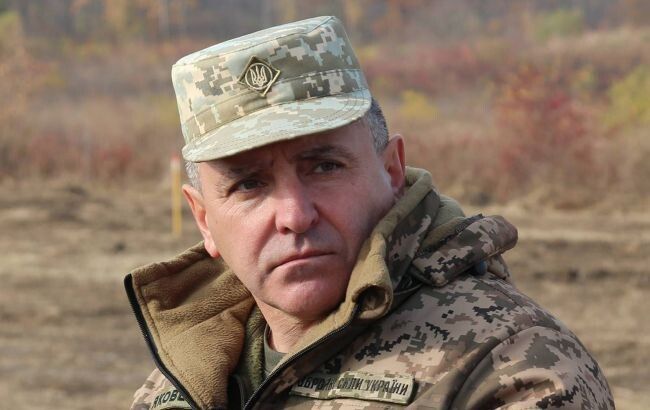President Volodymyr Zelensky of Ukraine has made significant changes to the country’s military leadership, including dismissing Oleksandr Yakovets as the commander of the Support Forces of Ukraine’s Armed Forces. Yakovets, who had been appointed just a month prior, was reassigned to head Ukraine’s Special Transport Service. Zelensky also replaced Bohdan Bondar as the head of the State Special Transport Service, a unit under the Defense Ministry responsible for managing the national transportation system’s facilities. These changes are part of a larger military reshuffling initiated by Zelensky, which began with the dismissal of Ukraine’s top military commander Valerii Zaluzhnyi in February.
In addition to the changes in the Support Forces and State Special Transport Service, Zelensky appointed Lieutenant General Volodymyr Hordiychuk as the new deputy commander of the National Guard of Ukraine (NSU) on April 5. The National Guard is a vital security force in Ukraine, responsible for maintaining public order and national security. Hordiychuk’s appointment is another key decision in Zelensky’s efforts to restructure and strengthen Ukraine’s military leadership. These appointments come amidst ongoing conflict in Eastern Ukraine, where Ukrainian forces continue to face off against Russian-backed militants in the Donbas region.
Oleksandr Yakovets, the former commander of the Support Forces, has a long history of military service, having started his career in 1992. He played a crucial role in Ukraine’s Anti-Terrorist Operation against Russian-backed militants in the Donbas and has received several state awards for his service. Despite being reassigned to head the Special Transport Service, Yakovets’ experience and expertise will continue to be valuable assets to Ukraine’s military efforts. Zelensky’s decision to reshuffle the military command reflects his commitment to ensuring strong and effective leadership in the face of ongoing security challenges.
The changes in high-level military command, including appointments in the Southern, Eastern, and Western Operational Commands, demonstrate Zelensky’s proactive approach to managing Ukraine’s defense and security forces. By appointing new leaders and making strategic adjustments to key units within the military, Zelensky aims to enhance the effectiveness and coordination of Ukraine’s defense operations. These changes are closely tied to the ongoing conflict in Eastern Ukraine, where Ukrainian forces are engaged in a protracted struggle against separatist and Russian forces. Zelensky’s efforts to strengthen Ukraine’s military leadership are crucial in maintaining stability and security in the region.
As Ukraine continues to face security challenges, both internally and externally, the role of the military remains paramount in safeguarding the country’s sovereignty and territorial integrity. Zelensky’s decisions to reshuffle the military command reflect his determination to uphold Ukraine’s national security interests and protect its citizens. The ongoing conflict in Eastern Ukraine underscores the importance of having strong and capable leadership within Ukraine’s armed forces. By appointing experienced and skilled individuals to key positions, Zelensky is taking proactive steps to ensure that Ukraine’s military is well-equipped to address the complex security threats it faces.
In conclusion, President Volodymyr Zelensky’s recent changes to Ukraine’s military leadership, including the dismissal and reassignment of key commanders, reflect his commitment to strengthening the country’s defense capabilities. By appointing new leaders and making strategic adjustments to various military units, Zelensky aims to enhance the effectiveness and coordination of Ukraine’s armed forces. These changes come at a critical time, as Ukraine continues to face security challenges both internally and externally. Zelensky’s proactive approach to managing the military command underscores his determination to protect Ukraine’s sovereignty and ensure the safety of its citizens amidst ongoing conflict and instability in the region.


